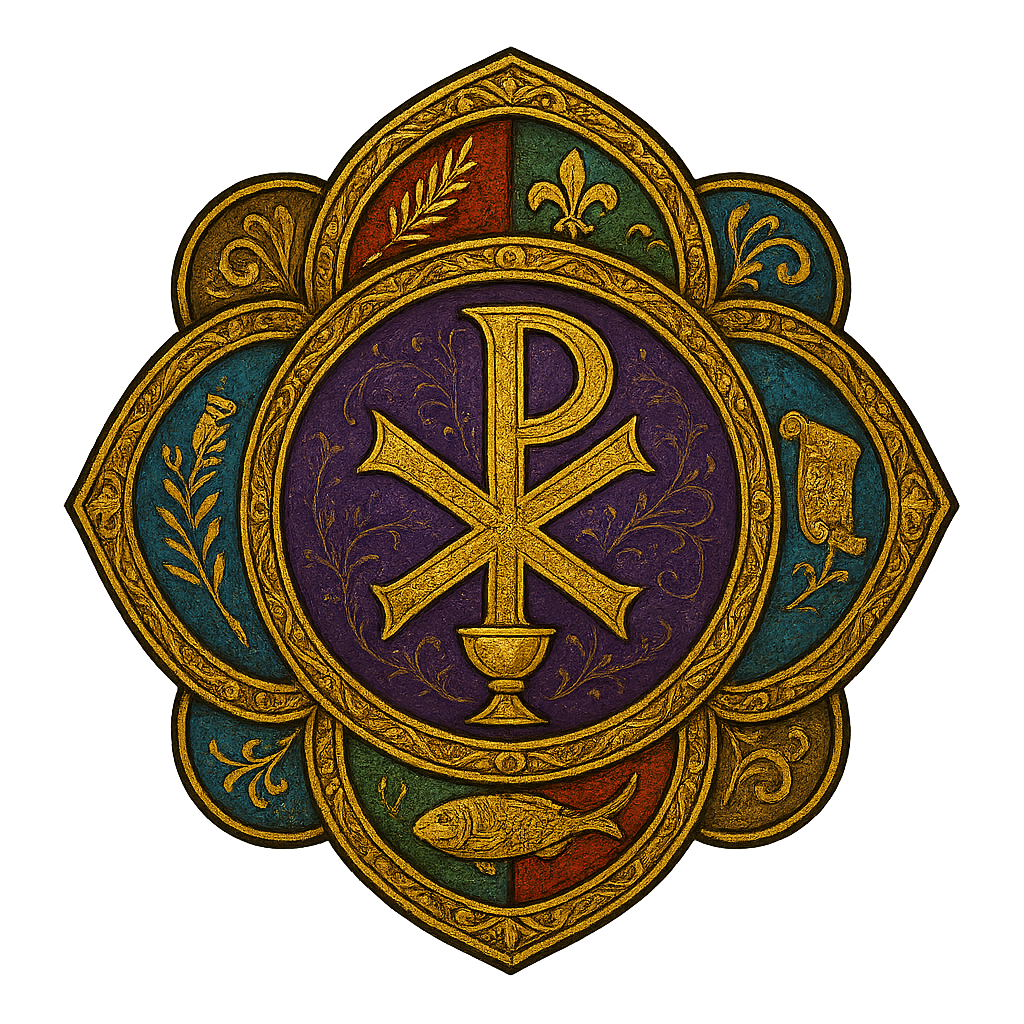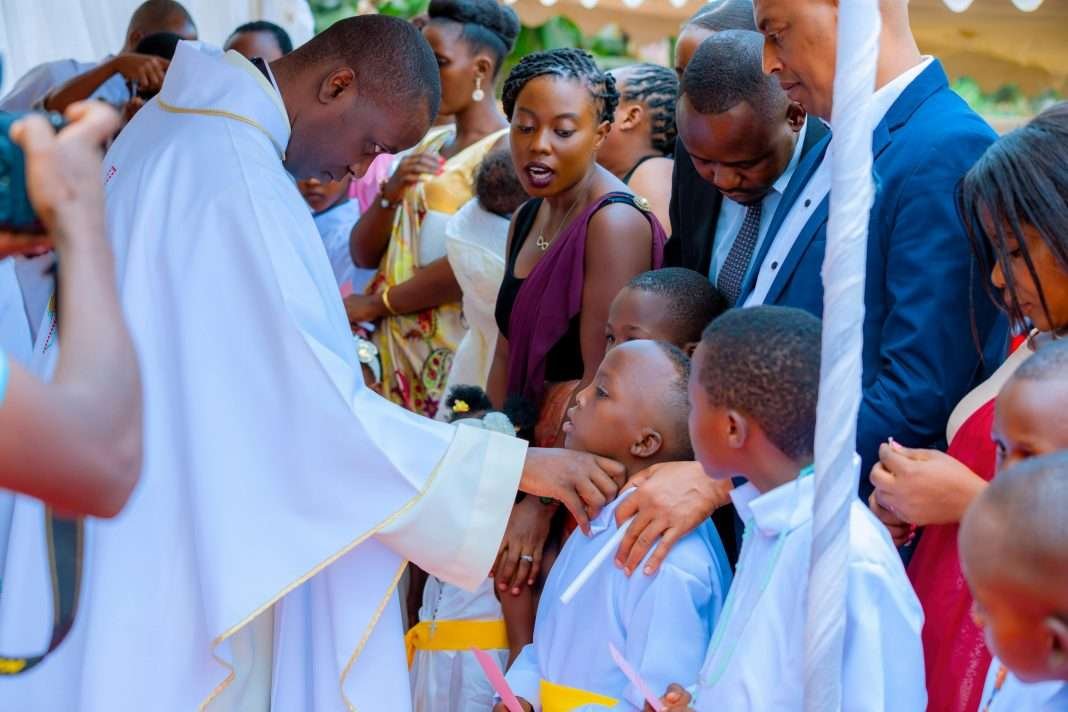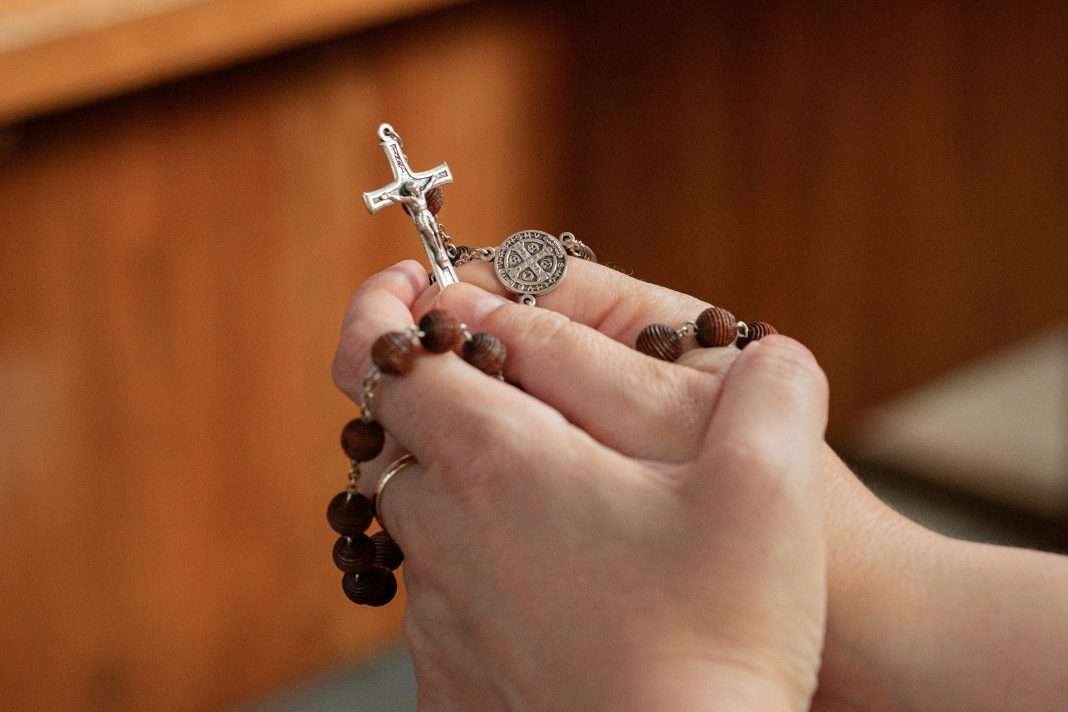Some Protestants accuse Catholics of disobeying Christ by calling priests “Father,” pointing to Jesus’ words in Matthew 23:9: “And call no man your father on earth, for you have one Father, who is in heaven.” (RSVCE)
On the surface, this might seem like a straightforward command. But taken literally, we would also have to avoid calling our biological dads “father”—a conclusion that Jesus clearly didn’t intend. Why? Because He also says just two verses earlier: “But you are not to be called rabbi, for you have one teacher, and you are all brethren.” (Matthew 23:8). Yet we still use the title “teacher” in Christian and secular contexts, even among those who make this accusation.
So what did Jesus mean?
1. Christ Was Condemning Pride, Not Vocabulary
Jesus was rebuking the scribes and Pharisees for their pride and love of honors. The key is in the context:
“They love the place of honor at feasts and the best seats in the synagogues, and salutations in the marketplaces, and being called rabbi by men.” (Matthew 23:6–7, RSVCE)
Our Lord was condemning the spirit of vanity in leadership—not the use of words like “father” or “teacher.” This aligns with His many other teachings on humility, such as:
“When you are invited, go and sit in the lowest place… For everyone who exalts himself will be humbled, and he who humbles himself will be exalted.”
(Luke 14:10–11, RSVCE)
The Church Fathers understood this clearly. St. John Chrysostom writes:
“He forbade them to call any man ‘father’ not because the name was unlawful, but because it was being used in a bad sense… He does not prohibit the title, but the spirit of pride.”
(Homilies on the Gospel of Matthew, Homily 72)
2. The Early Church Called Spiritual Leaders “Father”
Far from being an innovation, calling spiritual leaders “father” began immediately in the New Testament Church.
St. Paul writes to the Corinthians:
“For though you have countless guides in Christ, you do not have many fathers. For I became your father in Christ Jesus through the gospel.”
(1 Corinthians 4:15, RSVCE)
He also tells Timothy:
“To Timothy, my true child in the faith: Grace, mercy, and peace from God the Father and Christ Jesus our Lord.”
(1 Timothy 1:2, RSVCE)
St. John likewise writes:
“I am writing to you, little children, because your sins are forgiven for his sake.”
(1 John 2:12, RSVCE)
These apostles were not breaking Christ’s command. They understood that spiritual fatherhood, exercised in humility and service, was not only permissible—it was essential.
3. Priests Imitate Christ the Good Shepherd
We call priests “father” first and foremost because they stand in the place of Christ, the Good Shepherd. Jesus Himself said:
“I am the good shepherd. The good shepherd lays down his life for the sheep.”
(John 10:11, RSVCE)
Priests mirror this sacrificial role. They feed the flock with the Word and the Eucharist, tend the wounded through Confession, and shepherd the faithful to heaven. Pope St. John Paul II wrote:
“The priest is called to be the living image of Jesus Christ, the Spouse of the Church. His mission is to lay down his life for the flock, as Christ did.”
(Pastores Dabo Vobis, 22)
This paternal care is real, spiritual, and life-giving. The priest doesn’t just represent the Church—he acts in persona Christi, in the person of Christ.
4. God Gave Us Fatherhood and Family as Reflections of Himself
God is the original Father. Earthly fatherhood is not man-made—it is patterned after the divine:
“For this reason I bow my knees before the Father, from whom every family in heaven and on earth is named.”
(Ephesians 3:14–15, RSVCE)
This truth extends to the spiritual realm. The Church is our mother (Galatians 4:26), and priests are rightly called “fathers” within her, as they guide, nourish, and protect the faithful. St. Cyprian of Carthage, writing in the third century, said:
“He can no longer have God for his Father, who has not the Church for his mother.”
(On the Unity of the Church, 6)
Just as God shares His creative power with earthly fathers in biological life, He shares His redemptive power with priests in spiritual life.
5. Priests Bear Fruit Through Their Union with the Church
A priest is not a bachelor. He is a spouse—joined in spiritual union to the Church, his bride. Through this nuptial bond, he becomes fruitful. As Pope Benedict XVI taught:
“Celibacy, for the sake of the Kingdom of heaven, is not a rejection of sexuality, but a profound affirmation of the nuptial character of the priest’s mission… he becomes a spiritual father of many.”
(Homily, February 14, 2005)
The priest’s ministry bears spiritual children through the sacraments—most especially Baptism and the Eucharist. His fatherhood is not symbolic. It is real, active, and fruitful. The Catechism of the Catholic Church affirms this:
“The priest, by virtue of the sacrament of Holy Orders, acts in the person of Christ the Head.”
(CCC 1548)
Thus, to call a priest “father” is not flattery—it’s theology.
Conclusion
When Jesus said “call no man father,” He was condemning prideful ambition—not forbidding spiritual fatherhood. The apostles themselves called believers their children. God gave us fatherhood, both natural and spiritual, as a reflection of His own identity. Priests, acting in the person of Christ, are fathers because they teach, feed, protect, and sacrifice for the family of God.
To deny them this title is to deny the reality of what they do—and the One who acts through them.
Make a one-time donation
Make a monthly donation
Make a yearly donation
Choose an amount
Or enter a custom amount
Your contribution is appreciated.
Your contribution is appreciated.
Your contribution is appreciated.
DonateDonate monthlyDonate yearlyDiscover more from Catholicsay
Subscribe to get the latest posts sent to your email.




